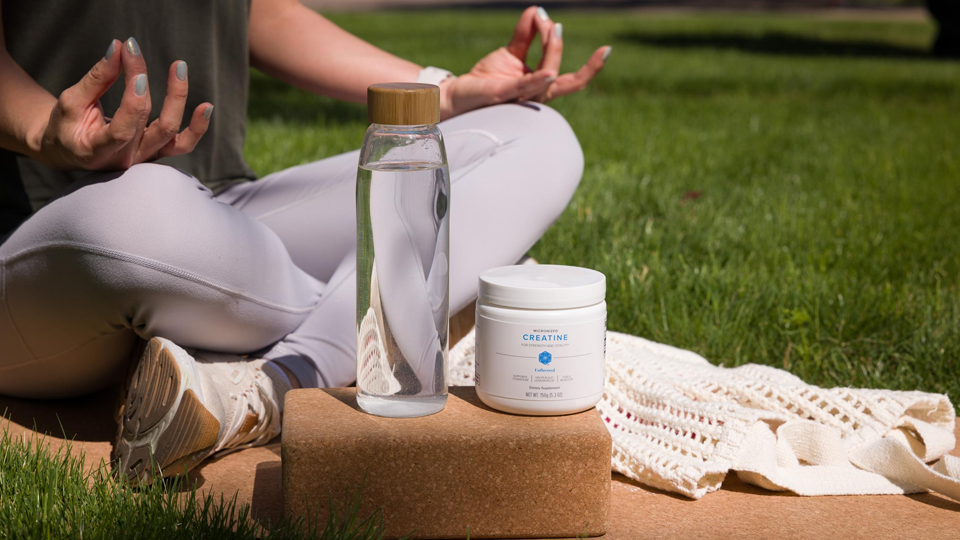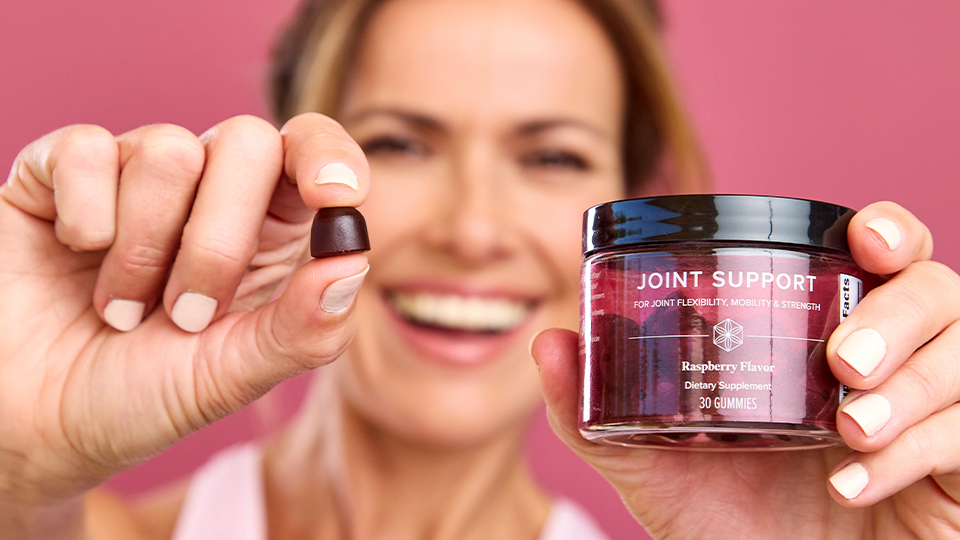Similar to plateaus that happen with weight loss, athletes also see them with sport, particularly in resistance training.
The reality is that the more experience a person has with exercising, the more difficult it is to make progress (1, 2). For this reason, many studies that investigate sports supplements do so in untrained individuals, yet the results from these products may not be applicable to more seasoned athletes.
Creatine might be the exception to the rule. According to a newly published research report, the supplement taken daily demonstrated that it could lead to increases in muscle mass even in experienced resistance trained men (3).
Creatine for 12 Weeks in Experienced Weight Lifters
Sport scientists randomized 45 men who were experienced with resistance training into two groups: one that received slightly above 2 grams of creatine and one that received a placebo. They carried out the study over 12 weeks with pre- and post-testing that consisted of anthropometric and body composition measurements.
With guidance from a dietitian, the subjects maintained their usual dietary intake throughout the intervention period. They also participated in a resistance training program. Results? The subjects who supplemented with creatine saw significantly increased muscle mass over the placebo group with the greatest effects seen in the upper limbs. The authors speculated that the difference in muscle mass response in the upper versus the lower limbs may be due to the muscle fiber composition. For example, there’s generally a higher percentage of fast-twitch fibers in the upper compared to lower-body muscles (4).
Takeaway: Creatine Works Even for Seasoned Athletes
Creatine may offer a way to increase performance in those more experienced athletes. The reason is that it accelerates the rate of restoring cellular energy during and after exercise (5-7). What this means for the athlete is greater strength, less fatigue, and a shorter recovery period (5-7).
Another way that creatine might work is by leading to an increase in intracellular water (8). That increased cellular hydration may contribute to greater muscle building by stimulating pathways that increase protein synthesis and suppressing those involved in protein degradation (9).
Note that similar to the dosage of creatine used in this study, both Isagenix AMPED™ Nitro and AMPED Power each contain 3 grams of highly pure creatine monohydrate.
References
- Ahtiainen JP, Pakarinen A, Alen M et al. Muscle hypertrophy, hormonal adaptations and strength development during strength training in strength-trained and untrained men. Eur J Appl Physiol. 2003 Aug;89(6):555-63.
- Deschenes MR, Kraemer WJ. Performance and physiologic adaptations to resistance training. Am J Phys Med Rehabil. 2002 Nov;81(11 Suppl): S3-16.
- Nunes JP, Ribeiro AS, Schoenfeld BJ et al. Creatine supplementation elicits greater muscle hypertrophy in upper than lower limbs and trunk in resistance-trained men. Nutr Health. 2017 Dec;23(4):223-229.
- Sjøgaard G. Capillary supply and cross-sectional area of slow and fast twitch muscle fibres in man. Histochemistry. 1982;76(4):547-55.
- Bemben MG, Lamont HS. Creatine supplementation and exercise performance: recent findings. Sports Med. 2005;35(2):107-25.
- Branch JD. Effect of creatine supplementation on body composition and performance: a meta-analysis. Int J Sport Nutr Exerc Metab. 2003 Jun;13(2):198-226.
- Lanhers C, Pereira B, Naughton G et al. Creatine Supplementation and Upper Limb Strength Performance: A Systematic Review and Meta-Analysis. Sports Med. 2017 Jan;47(1):163-173.
- Powers ME, Arnold BL, Weltman AL et al. Creatine Supplementation Increases Total Body Water Without Altering Fluid Distribution. J Athl Train. 2003 Mar;38(1):44-50.
- Schoenfeld BJ. Potential mechanisms for a role of metabolic stress in hypertrophic adaptations to resistance training. Sports Med. 2013 Mar;43(3):179-94.





